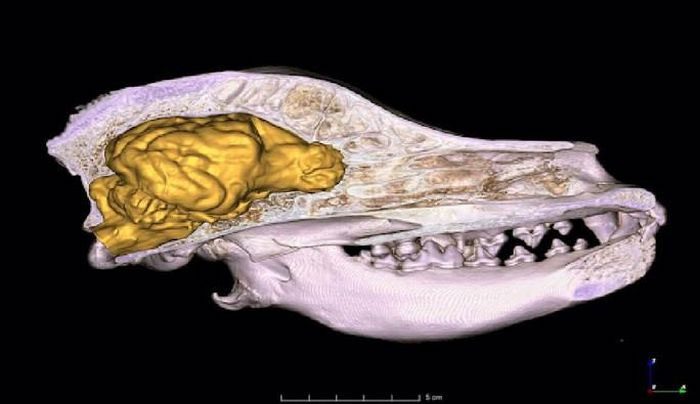For the past 150 years, a creature that has often been alongside humans has quietly developed a larger skull and brain in a perplexing manner. It seems that they are evolving to possess superior intelligence.
A recently published study in the scientific journal Evolution has shocked the scientific community as it contradicts well-established evolutionary theories.

CT scan of a dog’s skull in Hungary – (Photo: Kálmán Czeibert).
Typically, the domestication process led by humans causes surrounding animal species to become less intelligent, significantly reducing brain size.
The reduced brain regions control functions such as mate selection, hunting, and feeding… This somewhat aids them in becoming more “tame,” adapting to lifestyles desired by humans.
However, it appears that dogs are starting to evolve in the opposite direction: Over the past 150 years, the skull and brain of domestic dogs have noticeably increased in size, according to research led by evolutionary biologist Niclas Kolm from Stockholm University (Sweden).
“Different dog breeds live in varying levels of social complexity and perform complex tasks that require larger brain capacity” – Dr. Kolm hypothesizes, suggesting that human breeding efforts have also played a role.
However, the research results indicate that their genes are the key factor, as the increase in brain size is not limited to specific dog groups but is appearing in dogs in general, living in various environments. They may indeed be evolving, though this has yet to be specifically proven.
According to Science Alert, some other experts remain steadfast in the hypothesis that the social environment that we have led domestic dogs into – which is treated more specially than other pets – has contributed to this phenomenon.
The final answer to this discovery remains shrouded in mystery. However, it can be asserted that they are gradually closing the gap with wolves – a gap created by the initial domestication process, which resulted in wolf brain size always being 24% larger than that of dogs.


















































